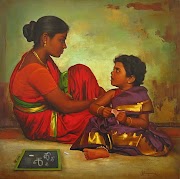Lifelong education is becoming increasingly popular in a constantly changing world, thanks to the efforts of the state and society. As a result of such a notion, everyone should be reminded that education does not end with the acquisition of a certificate; self-study and self-education should be pursued throughout one's life. As a result, contemporary education necessitates the development of educational methods that enable a person to think more productively, autonomously fulfill his or her need for new information, and so on. Individuals benefit from critically developed thinking since it aids in the identification of knowledge gaps and the need to update out-of-date information.
For a person to be successful in the future, he or she must be capable of not just changing jobs, but also changing the domain in which they operate. Even if it's a little scary, it'll be here in only one year. This may be the reason why students usually prefer performing some tasks that require any kind of personal approach and developing their own position and tend to buy cheap assignment online, when it is not interesting for them. For a person to have the power to adjust and adapt their skills to another sphere, they must first have the ability to shift the sphere they are in. Consequently, we're teaching it to students who will have no problem recalling it in the future.
Building critical thinking skills continues to be a hot subject in the United States and other parts of the world. This is why this issue has to be addressed and discussed on the daily basis.
WHAT IS CRITICAL THINKING?
The ability to critically evaluate things and events while reaching appropriate conclusions allows an individual to offer sufficient assessments of what is happening and to correctly apply the results obtained to a specific scenario or issue is referred to as critical thinking. Essentially, critical thinking is a set of judgments. It is the ability to critically assess incoming information as well as one's own opinions and conclusions that distinguishes critical thinking from other types of thinking. Critical thinking is an objective analysis of an event or circumstance.
Everyone knows that when it comes to critical thinking, no one can ever be completely certain of anything. This includes information obtained from sources with a questionable reputation, such as the media. He is continuously asking a slew of questions concerning the information that is being fed to him. It's critical to understand who would be interested in this case. Is this a true statement? Is there anyone out there that has the ability to do anything? Is it possible that he has ulterior motives?
It's crucial to realize that critical thinking is a personal trait that enables people to make sense of and "digest" new knowledge. Contrary to popular belief, this is not the same as being paranoid. A person evaluates the dependability of information by examining its source and making a judgment about how probable it is that this data is credible.
MAIN CONCEPTS OF CRITICAL THINKING
It is a great responsibility to develop the rules students need to follow to develop critical thinking, as the majority of elementary school children will go on to work in fields for which there are no standards. To prepare kids for such a world is part of teacher’s duty.
1. Nothing in life should be taken for granted.
2. Think about why you're doing or holding a certain attitude.
3. Investigate on your own.
4. Investigate the situation by asking questions.
5. Separate enormous volumes of data into smaller, more manageable chunks
6. Don't take yourself too seriously.
7. Avoid being paralyzed by fear of being incorrect.
Teachers in particular should be mindful that the final two criteria allow for errors. Consider a pupil telling a teacher, "You're wrong." Consider the ramifications. Instead of claiming exclusivity, do your own study and prove your point of view.
Keep a mental journal to organize your thoughts. It gets evident when you express yourself. It's also helpful to speak your views aloud. When thoughts are spoken verbally, they become more ordered and clear.
THE QUALITIES IT REQUIRES
Developing critical thinking skills requires a number of prerequisite attributes to be developed in the learner first:
1. The ability to plan ahead of time. Significant thinking is developed via planning, and planning is the first and most critical stage. As a result, scientists recommend formulating a response strategy before responding to the question.
2. The ability to change one's mind. A critical thinker is open to new ideas, willing to alter his perspective and approach to problems.
3. The ability to stick with something until the end is achieved. It takes a lot of effort to think clearly. When faced with a challenging problem at school or business, you must put in more effort and spend more time to be successful. Time, energy, and other resources can only be expended by those who are dedicated to succeeding.
4. Willingness to accept responsibility for your actions. It's okay to make a mistake as long as you learn from it and go on to find a better solution.
5. The ability to be aware. Experts agree that this is a crucial characteristic since it implies the ability to examine one's own mental activity and trace one's own reasoning trajectory. Experts agree.
6. Look for ways to make a deal. Decisions must be able to be understood by others if they are to rise above the status of utterances.
HOW TO FOSTER IT IN STUDENTS
Families should foster critical thinking from infancy. He acquires perceptions and experiences as he grows, which is thinking and contemplation. It's unintentional. Various forms of job must thus incorporate this skill's development. For starters, ask open questions rather than restricted ones.
Consider ways to persuade kids to write as much as possible. Involve kids in group projects and collaboration. Usual sources of learning Group work helps people grasp others' perspectives and accept that others think differently. Opening your mind to new ideas and tolerance is part of team learning. This prepares pupils for the future since everyone works as a team.
They used to say learn and think. But even a lousy textbook may promote critical thinking. The teacher says, "Here's the textbook, here's one perspective." Find and prepare alternative perspectives.
FINAL THOUGHTS
A new educational setting must include lessons on critical thinking. We need new training programs since the current ones don't focus sufficiently on helping pupils develop their creative potential. This type of curriculum can only be used by teachers who are willing to work on their own development as well as the development of their students. Practitioners of critical and creative thinking development programs must adhere to the concepts that underpin them.




















0 Comments